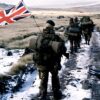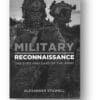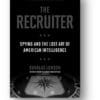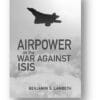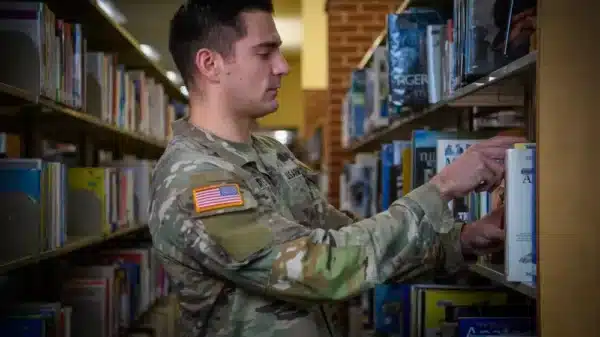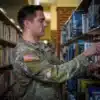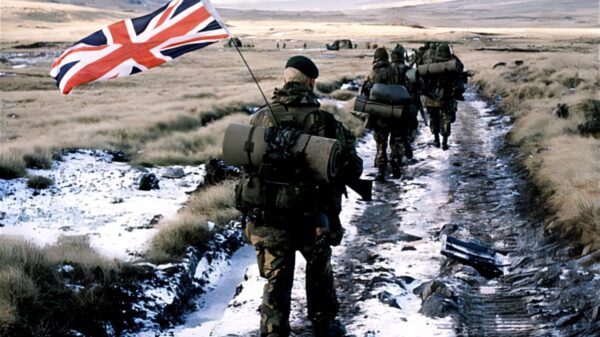Robert M. Mitchell, Joint Special Operations University, Tampa, Florida, USA
ABSTRACT
The article considers the process of ethical decision-making in the unique and ever-changing world of special operations. This is accomplished by initially reviewing the evolutionary development of Western thinking about ethics and summarizing aspects of the three classical schools of ethics therein: deontological, consequentialism, and virtue ethics. The article illustrates the broad, varied, and evolving scope of activities demanded of military special operations, as well as describes the concept of employing a dynamic approach to ethical decision-making incorporating facets of all three classical schools in a systematic manner. The author discusses the potential positive impact of the dynamic ethical decision-making model on special operations and explains how it fits with other ethical efforts being pursued in the special operations community. Finally, the author recommends a potential path to implementation via multiple reinforcement methods, especially practical ethical decision-making scenarios threaded throughout training and education programs for those in special operations.
While reasonable people may argue about how the term “ethics” is defined and even more about what ethical conduct is, few would argue that the concept of ethics and behaving in an ethical manner is meaningless or relatively unimportant. A look across a panoply of reference sources would result in a broad number of definitions for the term. However, at least half of those formal descriptions, regardless if found in electronic form or in old dusty books on a shelf, would mention the terms morals or morality. How important is moral ethical behavior? Albert Einstein once said that “the most important human endeavor is the striving for morality in our actions. Our inner balance and even our very existence depend on it.”[1] In its simplest terms, ethics is the consideration of right and wrong in human behavior, be it actions or inactions, and its importance could even be considered existential in nature.
At least in the Western world, the subject of ethics has evolved through the ages of human history into three competing schools of thought. While some ethicists might add another category or two, virtually all agree with the three classical views of ethics. A look around the globe will reveal similar schools of thought in other regions, albeit with different names but similar approaches to how to decide right from wrong. This is likely because evaluation is driven by measuring sticks such as publicly known rules and what the effects are on individuals and society in general.
Over human history, a few different approaches have evolved to determine right and wrong in the conduct of human affairs. While other names could be used, the three primary schools are deontological, consequentialism, and virtue ethics.[2]Before advancing into the application of ethics to special operations, a discussion of each approach is prudent. Therefore, we will review the three classical schools of ethics, the idea of a dynamic approach incorporating all three, the impact on special operations, and a potential path to implementation.
The Three Classical Schools of Ethics
Deontological (Duties Derived from Rules)
The most basic and fundamental concept of ethical behavior is that people must fulfill their duties imposed by the rest of society. These duties could be derived from a variety of sources. This ethical approach could be simply described as following the rules. The rules could come from statutes, laws, codes, or other legal decrees. They could be embodied in regulations, directives, governing doctrine, or mandatory policies. They could simply be the fruit of relationships in one’s family, business, or community. The rules might even be unwritten traditions or social mores which are time honored and routinely accepted as imposing duties on members of a society. Finally, these duties could arise out of the rights a person has in their society. The bottom line is that the rules that exist demand compliance by the members of society and, in the deontological approach, one is ethical if he or she complies with these rules.
The problem with this approach is that neither human society nor the environment in which it exists are static. Time changes people and the world in which they live, while at the same time, the creation of rules is reactive and suffers from a time lag. This has been especially true in recent times as technology and globalism have pushed boundaries and changed the substantive center at a geometrically increasing pace. Moreover, even if some activities being considered by a person or group of people are in an area that has not seen much recent change, the rules rarely cover all the potential aggravating and mitigating facts and circumstances that could arise and confront a person making ethical decisions.
Consequentialism
A second classical school is based on consideration of the impact that human actions (or, as always, inactions) may have on the people involved. This approach to ethics is akin to the economic concept of utilitarianism. In considering the consequences of the spectrum of potential actions, what is right is determined by which conduct results in the greatest good to the greatest number of people who are involved or impacted. This makes the ethical decision something of an equation. Using the consequentialist approach to ethics, the right thing is what is most beneficial to the majority of the people.
The concern with this view of ethics is obvious almost directly on its face. The primary focus is exclusively the majority. What happens when the negative impact to the minority is monumental such as death, dismemberment, or other life altering harm? Under this form of ethical analysis alone, the enslavement of the minority for the benefit of the majority would be ethically acceptable. This is not to say that taking actions which benefit most of the people is inherently bad, but rather it is just too simplistic when used in isolation.
Virtue Ethics
The last category is primarily attributed to the ancient Greek philosopher, Aristotle. Although he has provided foundational ideas for many aspects of the Western World, none have had a more influential impact than his thoughts on ethical decision-making from how it is developed, what keeps it honed, and how it will fade and die in the absence of use. Like most of Aristotelian thought, the idea of virtue ethics is focused on the concept of balance. Finding the ethical path is the result of aiming for a virtue or set of virtues which sits on a spectrum between extremes. One of the best examples, especially in the context of discussing military actions, would be the virtue of bravery. Being brave is finding the right balance between cowardice and recklessness … not being too frightened to act when needed, but also not being too rash in acting nor excessive in action.
While the other two classical schools have a more concrete functionality because they consist of knowing the rules or accomplishing a rough equation, practicing virtue ethics is much more of an art form. Instead of coldly knowing a duty or calculating potential consequences, one must feel his or her way to the right course of action. One of the most important elements of Aristotle’s thought on the concept is that it is the practice of doing the balancing act which allows a person to develop ethical behavior, and the continued regular use of the practice which embeds and sharpens the skill. However, without practice the skill withers which is what today could be called moral fading.
The Application for Special Operations Forces (SOF)
Some might say that any one of these approaches to making ethical decisions is not adequate exclusively for human activity in general and that is a very valid point. However, the inadequacy of any one of these classical schools is particularly true for the world of special operations. This is because of the breadth and unique nature of the special operations mission. The U.S. Congress has directed that United States Special Operations Command (USSOCOM) be responsible for the activities listed below.[3]
- Direct action
- Strategic reconnaissance
- Unconventional warfare
- Foreign internal defense
- Civil affairs
- Military information support operations
- Counterterrorism
- Humanitarian assistance
- Theater search and rescue
- Other activities as may be specified by the President or the Secretary of Defense
Moreover, recent doctrine modified the statutory list above by specifically adding security force assistance, counterinsurgency, and countering weapons of mass destruction to that list.[4] It would be difficult to find a broader, more diverse set of missions in the U.S. military or any governmental agency for that matter. Moreover, many of these activities are done in an environment which is both complex and constantly changing, often at a relatively high speed. Therefore, the idea that any one single classical approach would suffice in guiding ethics for the SOF community is not realistic in any fashion.
Dynamic Ethical Decision-Making
If no singular classical school is able to truly supply the guidance for SOF ethical decision-making, what should be used? The answer is a dynamic model which utilizes all three of those standard approaches. While this may sound complex, it really is not. In fact, there is a logical progression which can be followed.
The most direct way to employ a dynamic ethical decision-making model is to proceed step-by-step logically through the three classical approaches. The most rational way is to move from the most concrete and certain, through to the most abstract and emotive of those approaches. Hence, one would start with the duty-based rules. In the situation at hand, what rules can the decider see that apply … what laws, treaties, regulations, directives, orders (written or unwritten) are germane to the potential actions to be considered. It is likely that there are some rule-driven duties that must be weighed and, although quite unlikely, they may even be determinative because they cover all of the facets of the situation.
The second logical step would be to consider the potential circumstances of any of the options in the range of actions being considered. The considerations in the SOF world could include issues like the potential collateral damage to noncombatants, both lives and property. It also could include the relationship with partner nations, be they host nations or countries with whom we are allied or would like to be. Consequential considerations to weigh could include public image elements both at home and abroad. These potential consequences must also extend beyond the immediately direct results, but also involve consideration of potential secondary and tertiary effects, as well.
Finally, the third step would be to employ Aristotle’s balancing of the extremes to hone the decision for just the right touch. This final segment is admittedly the most esoteric of the three as it is admittedly relying on emotive wisdom to reach the action (or possible inaction) decided in any given situation. Think of it in this manner. After going through the first two steps, a person facing an ethical decision might see the rules and the “greater good” met through two or three possible actions. It is the final polish on the decision to sense which of the actions feels to be the best based on the entirety of the circumstances and leaves one at the best location between the undesirable extremes on the ends of spectrum.
This concept of employing all three of the classical schools of ethics is not a new idea. Dr. Deane-Peter Baker, currently teaching ethics in support of the Australia’s SOF community has described it as using “triangulation” in the process of ethical decision-making.[5] Although Dr. Baker uses some different terminology, he also suggests the same order to the employment of the classical ethical schools … deontological, then consequentialism, with virtue ethics at the end.
A Final Vital Value to the Dynamic Model
There is one last aspect of employing a dynamic ethical decision-making model which is extremely valuable. Few people would deny that the culture in which people are born and raised is the germination point for most of the hallmarks of a society, including the ethical underpinnings of that society. The same could be said of the microcosm that is the corporate culture that permeates organizations big and small. If you want to have a healthy society that behaves in an ethical manner, you must cultivate the ethical behavior which is desired. Therein lies the beauty of the dynamic ethical decision-making approach.
Aristotle taught in his concept of virtue ethics that people are not born with a high standard of ethics, but rather are taught by their family and greater society to act in an ethical manner. The young are trained to pursue a virtuous life. Moreover, as noted above, Aristotle referred to living a virtuous life as not only learned, but something that is refined and embedded through continual practice. Therefore, an important added benefit of following this dynamic ethical decision-making process, including the last virtue ethic step, is that it will sprout and grow in the people who practice it and be visible to those around them.
The Way Forward
The SOF community is an expansive enterprise, headed by USSOCOM which consists of a variety of components which have special operations missions and authorities. These components exist within and are dramatically guided and influenced by the military services: Army, Navy, Air Force, and the Marine Corps. Within the components are smaller units. So, the greater SOF culture has within it multiple subcultures which have considerable sway with their SOF professionals. The challenge presented to this entire community is to find a way to foster a healthy greater collective culture of ethics while having it be complementary with the long-standing subcultures within the components and smaller units. The answer could be the broad and deep use of dynamic ethical decision-making. It could be the tie that binds without cutting healthy tissue below.
Relatively recently, academicians in the SOF world have speculated at some ethical decision-making truths. Members of the faculty at USSOCOM’s Joint Special Operations University in Tampa have derived a list which they believe will help SOF professionals think through important decisions with ethical implications. In short, Dr. Kari Thyne and Dr. Joseph Long have noted that tools and attitudes such as ethics education, realism, flexibility, diligent situational awareness, and ethical problem-solving skills are required for development of ethical operators, and that the corporate culture must be conducive to discussion of ethical decisions as a routine and natural occurrence.[6] This list hints at some of the elements within each of the three classical schools described above.
The special operations community already has a set of what has been referred to as the SOF Truths and the five tenets related to SOF’ unique place in the military and interaction with other national and international security professionals, as well as the population at large.[7] Each of these five truths is focused on the people who comprise SOF and those with whom they operate, including fellow U.S. forces, and speak to the importance of quality, competence, and interoperability. However, none of those truths directly speak to ethical conduct per se, even if one could say it is implicit in the list.
While the full list of ethical truths noted above is filled with solidly positive and useful ideas, possibly the collection could be boiled down into a singular tenet. If the underlying importance of SOF employing its considerable prowess with the careful adroitness and delicacy one would expect for their operations, that credo could take its place beside the five SOF Truths which are known and honored through the SOF community. It is possible that a mantra like “SOF competence is dependent on quiet professionals who complete missions not only with courage, but also with creativity and ethical integrity” could be such an undeniable truth. Standing in granite beside the other well-known SOF tenets would be the commitment to highly regard ethical decision-making in conducting of U.S. special operations activities. Then, what remains to be done is to make dynamic ethical decision-making the model to be practiced and weave it into all training, education, and operational environments in which SOF toils.
Conclusion
As noted earlier, when the rules embodied in any form … law, regulation, code, directive, orders, even unwritten but widely accepted doctrines or principles … are clearly and completely decisive on all of the facts and surrounding circumstances in a situation, they would govern what action a person or group of people should take. However, most people would agree that this simple equation is rarely the case. Professor Max Bazerman of the Harvard Business School submits that “When ethical lapses occur, they rarely happen in situations when what is right versus what is wrong is clear. They more typically occur when what is morally right is less clear.”[8]The world is constantly evolving and so are the situations in which people find themselves. Also, while the concept of trying to ensure that one’s actions would apparently bring about the greatest good for the largest number of people would come with a measure of satisfaction, it is far from assuring a truly ethical conduct as the equation is too simple. It could literally provide an excuse for atrocities, especially in the world of military warfare. Finally, although the continual use of virtue ethics is extremely vital in creating and fostering a culture and subcultures which highly value ethical conduct, it is insufficient as a singular approach because simply trying to balance between extremes in addressing ethical considerations is a fairly nebulous exercise without being cognizant of the rules pertinent and weighing the potential consequences as well.
What is needed is an approach which involves thinking through ethical dilemmas in a dynamic manner utilizing all of the three classical schools. By consciously doing so and practicing it with regularity, the mind is kept sharp, and the heart softened, without becoming flaccid. Thus, the SOF community, the operators, and all who support them can be adept at the science and art of ethical decision-making, avoid most ethical lapses as well as moral fading, and be the ethical force which they want to be, and their nation needs them to be.
[1] Albert Einstein, Helen Dukas, and Banesh Hoffmann, Albert Einstein, the Human Side: Glimpses from his Archives (Princeton, NJ: Princeton University Press, 1979).
[2] Jack D. Kem, “The Use of the ‘Ethical Triangle’ in Military Ethical Decision Making,” Public Administration and Management, vol. 11, no.1, 2006, 22-43.
[3] U.S. House of Representatives, Office of the Law Revision Counsel United States Code, Unified Combatant Command for Special Operations Forces, 10 U.S.C. § 167 (2012).
[4] Joint Publication 3-05, Special Operations (Washington, D.C.: Joint Chiefs of Staff, 2020).
[5] Deane-Peter Baker, Key Concepts in Military Ethics (Sydney, Australia: University of New South Wales Press, 2015).
[6] Kari Thyne and Joseph Long, SOF Ethical Considerations (Tampa, FL: Joint Special Operations University Press, 2020), https://jsou.libguides.com/ld.php?content_id=52624909.
[7] United States Special Operations Command, “SOF Truths,” accessed 29 January 2023, https://www.socom.mil/about/sof-truths.
[8] Max E. Bazerman, “Evaluating Your Business Ethics; A Harvard Professor Explains Why Good People do Unethical Things,” Gallup Business Journal (12 June 2008), https://news.gallup.com/businessjournal/107527/evaluating-your-business-ethics.aspx.



